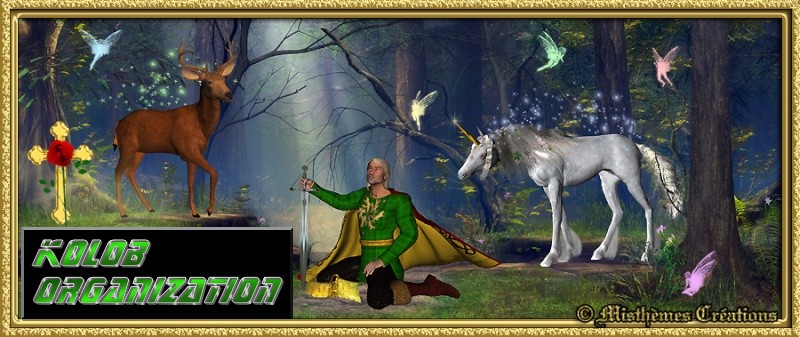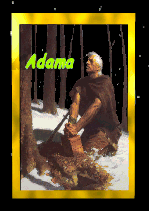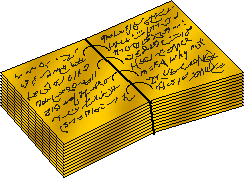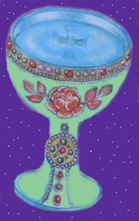
Forum encyclopédique d'histoire des Mormonismes et de la Franc-Maçonnerie & archéologie - sciences - aéronautique - paranormal - ufologie- orbs - ésotérisme - symbolisme
|
|
| | HISTORY OF BENJAMIN FRANKLIN |  |
| | | Auteur | Message |
|---|
Commandeur Adama
Magister Ordo Kolob - Admin

Nombre de messages : 8905
Age : 60
Localisation : Pays de Néphi - Mormon forest
Date d'inscription : 16/02/2007
Chevalier de Kolob - Vers la Sagesse
 A reçu la Lumière: 180 A reçu la Lumière: 180
 En quête du Vase Précieux et Elu: En quête du Vase Précieux et Elu:
    (150/200) (150/200)
 A la recherche du couple de Licornes du Jardin d'Eden: A la recherche du couple de Licornes du Jardin d'Eden:
    (7/700) (7/700)
 |  Sujet: HISTORY OF BENJAMIN FRANKLIN Sujet: HISTORY OF BENJAMIN FRANKLIN  Dim 18 Nov - 18:24 Dim 18 Nov - 18:24 | |
|  Benjamin Franklin
1706-1790 Representing Pennsylvania at the Continental Congress Born: January 17, 1706 Birthplace: Boston, Ma. Education: Self-taught, apprenticed as a printer. Honorary Doctor of Laws, Universities of Edinburgh and Oxford. Work: Printer, Publisher, Scientist. Clerk of the Pennsylvania Assembly, 1736; Founded the Library Company of Philadelphia, 1731; Postmaster of Philadelphia, 1737-1753; Member of Pennsylvania Assembly, 1751-1764; Deputy Postmaster general of the British colonies in America, 1753; Founded Academy of Sciences of Philadelphia, 1753; Agent to Europe for Pennsylvania, 1757-1762, for Pennsylvania, Georgia, New Jersey, Massachusetts, 1764-1775; Elected to Continental Congress, 1775; Testified before Parliament concerning the Stamp Act, 1776; Postmaster General of the united colonies, 1775; Commissioner to the French Court, 1776; Minister plenipotentiary to the French Court, 1779; Negotiator in and Member of the Treaties with Gr.-Britain, 1781-1783; Member of the Supreme Executive Council of Pennsylvania, President of Pennsylvania Society for the Abolition of Slavery, 1785; Senior member of the Constitutional Convention, 1787. Died: April 17, 1790 Benjamin Franklin, born in Boston, Massachusetts, on January 17, 1706, may by his life alone be the most profound statement of what an American strives to be. With no formal education beyond the age of 10 years, Franklin was celebrated throughout Europe, welcomed in any Royal Court, sought out by every prestigious society. Indeed, when the reputations of George Washington and Thomas Jefferson had yet to be sorted out, Franklin was worshipped wherever his name was known. He attended grammar school at age eight, but was put to work at ten. He apprenticed as a printer to his brother James, who printed the New England Courant, at age twelve, and published his first article there, anonymously, in 1721. Young Benjamin was an avid reader, inquisitive and skeptical. Through his satirical articles, he poked fun at the people of Boston and soon wore out his welcome, both with his brother and with the city. He ran away to New York and then on to Philadelphia at the age of 16, looking for work as a printer. He managed a commission to Europe for the purpose of buying supplies to establish a new printing house in Philadelphia, but found himself abandoned when he stepped off ship. Through hard work and frugality he bought his fare back to Philadelphia in 1732 and set up shop as a printer. He was appointed clerk of the Pennsylvania Assembly in 1736, and as Postmaster the following year. In 1741 he began publishing Poor Richard's Almanac, a very popular and influential magazine. He was elected to the Pennsylvania Assembly in 1751 and served as an agent for Pennsylvania (and ultimately for three other colonies) to England, France, and several other European powers. He was elected to the Continental Congress in 1775, where he played a crucial role in the rebellion against Gr. Britain, including service to Jefferson in editing the Declaration of Independence. Franklin, who was by this time independently wealthy and retired from publishing, continued to serve an important role in government both local and national. He was the United States first Postmaster General, Minister to the French Court, Treaty agent and signer to the peace with Gr. Britain, Celebrated Member of the Constitutional convention (See Work, above). Benjamin Franklin: Businessman, Writer, Publisher, Scientist, Diplomat, Legislator, and Social activist, was one of the earliest and strongest advocates for the abolition of Slavery, and for the protection of the rights of American aboriginal peoples. He died on the 17th of April in 1790. On that day he was still one of the most celebrated characters in America. So should he always be. Source : http://www.ushistory.org/declaration/signers/franklin.htm | |
|   | | Commandeur Adama
Magister Ordo Kolob - Admin

Nombre de messages : 8905
Age : 60
Localisation : Pays de Néphi - Mormon forest
Date d'inscription : 16/02/2007
Chevalier de Kolob - Vers la Sagesse
 A reçu la Lumière: 180 A reçu la Lumière: 180
 En quête du Vase Précieux et Elu: En quête du Vase Précieux et Elu:
    (150/200) (150/200)
 A la recherche du couple de Licornes du Jardin d'Eden: A la recherche du couple de Licornes du Jardin d'Eden:
    (7/700) (7/700)
 |  Sujet: Re: HISTORY OF BENJAMIN FRANKLIN Sujet: Re: HISTORY OF BENJAMIN FRANKLIN  Dim 18 Nov - 18:30 Dim 18 Nov - 18:30 | |
|  In 1776 Benjamin Franklin helped draft the Declaration of Independence and soon after set sail for Paris, sent by the Continental Congress to negotiate a treaty with the French. In 1776 Benjamin Franklin helped draft the Declaration of Independence and soon after set sail for Paris, sent by the Continental Congress to negotiate a treaty with the French. He was welcomed with great enthusiasm, for his fame had preceded him—fame not as a statesman but as a scientist. He was already one of the eight foreign associates of the French Academy of Sciences (a century would pass before another American got this rare honor). As the "Newton of electricity" whose theories, experiments and lightning rods were known the length of Europe, Franklin was given a respectful hearing. Deliberately simple in dress and manner, sparkling with wit and homely wisdom, Franklin quickly convinced his audience that he—and by extension the newborn United States of America—embodied unspoiled virtue. He became perhaps the chief factor in winning the support of the French government and its fleet, support which proved decisive in the War for Independence. If Franklin the diplomat could achieve so much, it was largely because first he was Franklin the scientist. He was forty years old before he took up scientific research; until then he had been chiefly concerned with earning a living. His brief formal education ended at the age of ten when he was removed from school to help his father, a Boston chandler and soapmaker. But he had acquired an interest in books and was soon apprenticed to his elder brother, a printer. Before the end of his apprenticeship he ran away to seek his fortune, and after a short time in Philadelphia, sailed for England. In London he perfected his knowledge of the art of printing and made friends with some gentlemen scientists. He just missed being introduced to the aging Isaac Newton. Returning to Philadelphia in 1726, Franklin set up a printing business. His Poor Richard's Almanack and other publications were popular, and he also succeeded in colonial society, throwing himself enthusiastically into every variety of civic affairs. In 1743 an itinerant lecturer from England demonstrated the latest electrical experiments to the wondering colonials. Franklin saw these demonstrations and later bought the lecturer's entire apparatus. In 1745 he began to experiment on his own, and soon after turned the management of his printing business over to a partner. "When I disengaged myself . . . from private business," he wrote, "I flatter'd myself that, by the sufficient tho' modest fortune I had acquired, I had secured leisure during the rest of my life for philosophical studies and amusements." Experimental "philosophy" and parlor "amusements" were not far apart in the 1740's. The phenomena of electricity in particular seemed of minor importance; often they were studied out of simple fascination with the curious toys and perplexing contradictions that made up the bulk of the subject. Franklin, too, invented such tricks: see the queer game of "treason" and the electrical barbecue in Letter IV, below. But he also sought the principles behind the games. Aided by Philadelphia friends, but using chiefly his own skilled hands and ingenious brain, he devised simple—sometimes overly simple—explanations for the bewildering variety of electrical phenomena. (During the same period he also served on the Philadelphia city council and the Pennsylvania assembly, and was much occupied with the problem of defending the colony from hostile Indians and privateers.) Electricity, said Franklin, is a substance which is conserved, and which may be either "positive" (in excess) or "negative" (deficient) in a body. The electrical fluid or "fire" repels itself and is attracted to the substratum of "common matter." Franklin also held that the common matter attracts itself; it was left to one of his admirers, Franz AEpinus, to show that Franklin's principles required that common matter repels itself. Despite its flaws, the "Franklinist" theory explained electrical phenomena far better than any previous one, and after improvement by AEpinus and others it drove its rivals from the field throughout Europe. Franklin meanwhile proposed an experiment which would prove at the same time two exciting conjectures: that electricity is a powerful and universal force of nature, and that this force can be controlled. He suggested that a sharp point might "draw" electricity from a thundercloud, just as a grounded point will discharge a nearby charged object in the laboratory. This "Philadelphia experiment" was first tried in France with a tall pointed rod; it worked, making Franklin famous as the man who showed how to steal sparks from the lightning. A little later and independently he tried the experiment himself, using a kite instead of a tall rod (a dangerous activity, which later killed another experimenter). While his electrical work was his greatest scientific achievement, Franklin also contributed to knowledge of heat conduction, storms, the Gulf Stream, etc., and invented bifocal glasses, the rocking chair, daylight saving time, and more. He might have done more still, but after he had been working for only a few years on electricity, his country called him to other tasks. He put aside his researches reluctantly and even into his old age kept hoping to return to them. Franklin's discoveries were reported in his letters to his English friend Peter Collinson and were published in London in a book, from which the selections below are drawn. The results in Letter IV may seem commonplace to a modern physicist where they are not simply confused, but in fact most of this communication was new, startling and highly significant. A few words of explanation may help. The letter deals with a Leyden jar or phial filled with water connected to a terminal or hook and coated with conducting foil connected to a wire or tail. Also used are electrics, which we would now call dielectrics, such as glass or wax; a non-electric is a conductor. The letter contains the first statement of the Law of Conservation of Charge, the first useful theory of the action of a condenser, and much else. We also give an excerpt reporting the kite experiment. Source : http://www.aip.org/history/gap/Franklin/Franklin.html | |
|   | | | | HISTORY OF BENJAMIN FRANKLIN |  |
|
| | Permission de ce forum: | Vous ne pouvez pas répondre aux sujets dans ce forum
| |
| |
| |
|

